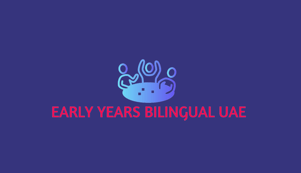Why a Parent- child relationship is important?
It’s no secret that being a parent is one of the most challenging roles in the world. Modern family life can be stressful and with various pressures on families it’s not always easy. Ultimately, parents want what is best for their child and a strong parent-child relationship can help lead to better childhood experiences for children.
In some of my own research (see Said & Hua, 2019; Said, 2021a; 2021b; to appear 2022) I have seen how good relationships help child connect with their languages (in this case Arabic) because the children have a good relationship with their parents.
The younger children seem to connect with Arabic because they feel the love and care from parents and the older children are in fact able to say that they want to learn Arabic or Russian because they feel closer to their parents if they do so.
Sometimes, as a parent you get very busy with taking children to classes and reading with them and teaching them new words every day; but don’t forget that in addition to that, your love and care is as important.
Importance of parent-child relationships
Children who have a good relationship with their parents will be able to form positive relationships with others later in life. This is something that many family psychologists have mentioned.
Scholars say that because of having a good relationship with their parents they will be able to form strong bonds with their friends.
They will also be able to solve their problems in a more skillful way because of their own experiences of forming a good relationship.
Having a good relationship with their parents children have a good control over their own emotions. Such skills help children to deal with stress and other difficult situations.
Scholars say that a good relationship with the child helps in their social, cognitive and emotional development.
How can you form a strong parent-child relationship?
Take note of what they are doing in their life.
Be interested in their likes and hobbies.
Make time to listen to their stories and thoughts and ask interesting questions.
Develop some shared daily or weekly actions (e.g., book reading together, or storytelling, or playing a game after school or at the weekend, cooking something simple like muffins or watching an interesting TV show you both enjoy). This will help the child feel that they can share their free time with you and will contribute to developing your relationship in new ways.
Another easy way to ensure you do joint action together is for example, sharing meals each day after school, if possible. You will be able to ask the child about his/her day or tell them about your day, all of which build more bonds.
Show them how you feel, express your feelings to them in different ways through words or small actions. These small affirmations help the child to feel secure in their relationship with you.
Remember that all the above actions or tips can be conducted in your language or offer you a chance to use your language to express these feelings of just talking during a joint action with your child.
It is important that you make your family life and your relationships with your children in a way that suits your family, your life and your culture. By building a safe home environment and forming a secure relationship with your child will make them happy, secure and ultimately strong individuals in society. Perhaps though a strong relationship with you, they will also embrace your language and learn it too.
Some links to research:
Said, F. F. S. (2021a). Arabic-English bilingual children’s early home literacy environments and parental language policies. European Early Childhood Education Research Journal, 29(3), 424–440. https://doi.org/10.1080/1350293X.2021.1928724
Said, F. F. S. (2021b). ‘Ba-SKY-aP with her each day at dinner’: Technology as supporter in the learning and management of home languages. Journal of Multilingual and Multicultural Development, 0(0), 1–16. https://doi.org/10.1080/01434632.2021.1924755
Said, F., & Zhu, H. (2019). “No, no Maama! Say ‘Shaatir ya Ouledee Shaatir’!” Children’s agency in language use and socialisation. International Journal of Bilingualism, 23(3), 771–785. https://doi.org/10.1177/1367006916684919
Said, F.F.S. (to appear 2022). Family as a system: Values and ideologies in family language policies of diverse Arabic-speaking multilingual families. In Wright, L. & Higgins, C.(eds.) Diversifying family language policy: Diverse families, modalities, and contexts. London: Bloomsbury Publishing
Another useful site: https://www.nytimes.com/guides/well/guide-to-modern-parenting


Empowering parents and educators in language learning.
Contact us:
More benefits
© 2024. All rights reserved.


